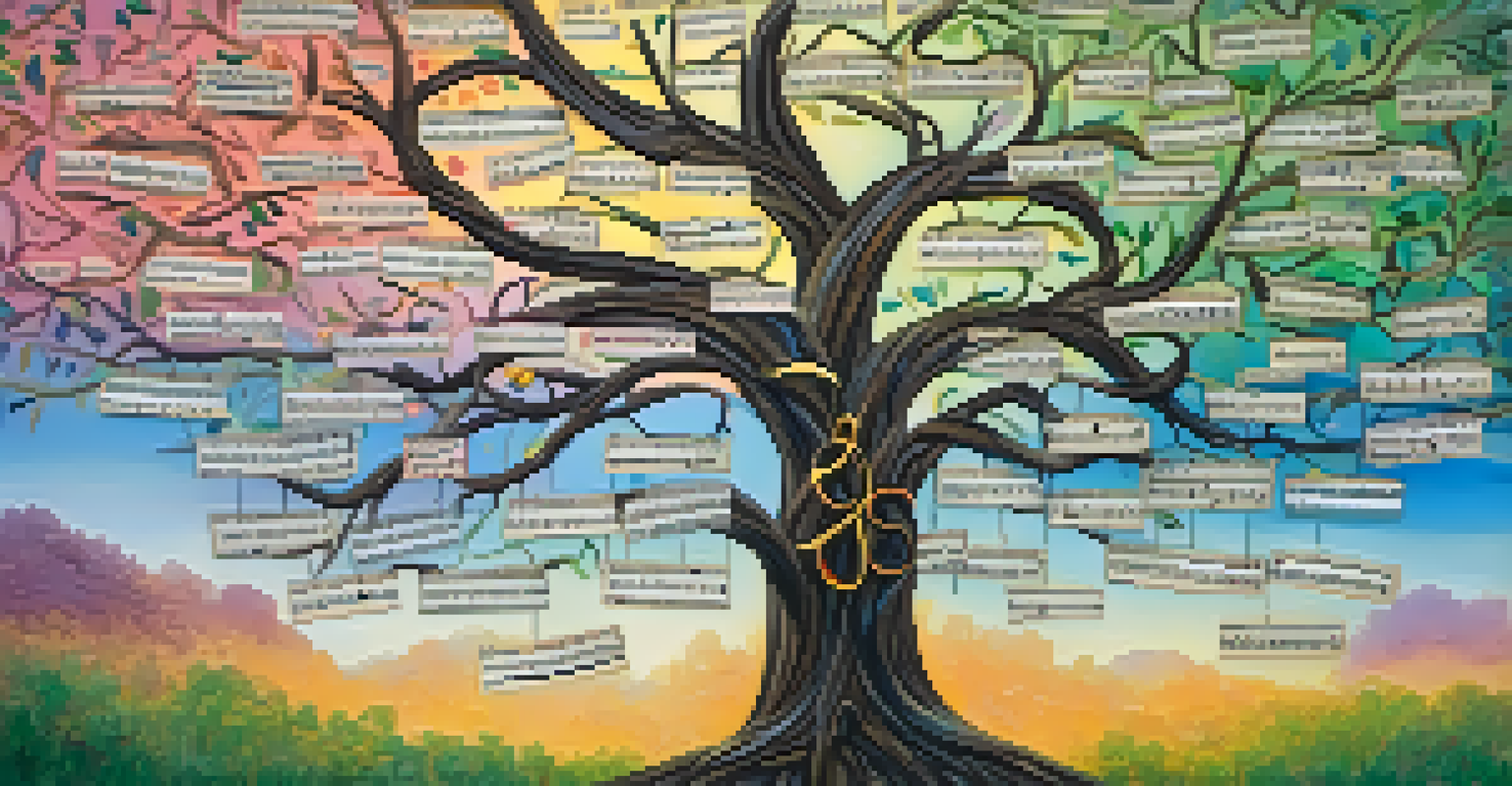Cherished Tunes: The Role of Music in Family Memories

The Soundtrack of Our Lives: Music as Family History
Music has a remarkable ability to evoke memories, serving as a soundtrack to our lives. Each family has its own unique playlist, filled with songs that capture special moments together. For instance, think about the song that played at your wedding or the lullabies sung to you as a child. These tunes become intertwined with our stories, shaping how we remember our past.
Music can change the world because it can change people.
When we listen to familiar songs, they can transport us back in time, making us feel as if we’re reliving those moments all over again. This phenomenon occurs because music triggers emotional responses, helping us recall not just the tune but the feelings and experiences associated with it. It’s a powerful reminder of how music weaves into the fabric of our family history.
As families gather to reminisce, sharing songs can spark joyful conversations and laughter. Whether it's a favorite road trip anthem or a classic holiday tune, these cherished melodies bridge generational gaps, allowing younger family members to connect with their roots. In this way, music becomes a legacy, passed down through the years.
Creating Traditions: Music in Family Celebrations
Family celebrations often come alive through the music we choose to play. From birthday parties to holiday gatherings, these occasions are filled with melodies that enhance the atmosphere. Imagine the excitement of a family reunion where everyone dances to a beloved song—it’s a beautiful way to create lasting memories.

Traditions surrounding music can vary greatly from one family to another. Some families may have a special song they sing together every year, while others might hold dance-offs to their favorite hits. These traditions not only foster a sense of belonging but also strengthen familial ties, as everyone contributes to the joyful experience.
Music Elicits Family Memories
Music serves as a powerful trigger for nostalgia, helping families reminisce about shared experiences and emotional moments.
Additionally, music can help mark the passage of time during these celebrations. As families grow and change, the songs that accompany each milestone become part of the collective memory. This evolving soundtrack captures the essence of family life, reminding us of where we’ve been and where we’re headed.
Emotional Connections: Music and Family Bonds
Music has a unique ability to forge emotional connections, making it an essential part of family life. Whether it’s singing in the car or sharing favorite playlists, these experiences create shared moments that deepen relationships. They provide a safe space for expression, where family members can be themselves and connect on a deeper level.
Where words fail, music speaks.
For instance, a simple karaoke night at home can turn into a heartwarming event, with laughter and shared stories about the songs being sung. These intimate moments help family members understand each other better, revealing personal stories behind the music they love. It’s in these exchanges that true connections are formed.
Moreover, music can also serve as a source of comfort during challenging times. Whether it’s a soothing song during a family crisis or a celebratory tune after overcoming obstacles, music plays a vital role in navigating life’s ups and downs together. It reinforces the idea that, through thick and thin, family is there to support one another.
The Power of Nostalgia: How Music Evokes Memories
Nostalgia is a powerful force, and music is one of its strongest triggers. Certain songs can remind us of specific times and places, bringing back vivid memories of our family experiences. For example, hearing a song from your childhood can instantly transport you back to family road trips or cozy evenings at home.
This emotional response is rooted in our brain's chemistry, where music activates areas associated with memory and emotion. As a result, our favorite tunes can evoke feelings of joy, sadness, or even longing, reminding us of loved ones we may have lost. It’s fascinating how a few notes can unlock a treasure trove of memories.
Traditions Strengthen Family Bonds
Family celebrations infused with music create lasting traditions that enhance connections and foster a sense of belonging.
Moreover, sharing these nostalgic songs with family can create opportunities for storytelling. As you listen together, you might find yourself reminiscing about past events or discovering new stories that you hadn’t heard before. This exchange not only preserves family history but also enriches relationships, making memories even more meaningful.
Music as a Tool for Communication in Families
For many families, music serves as a form of communication that goes beyond words. A carefully curated playlist can express feelings or sentiments that might be difficult to articulate. For instance, sending a song to a family member who is going through a tough time can convey support and understanding in a way that words alone may not.
Additionally, music can bridge generational gaps, allowing family members to share their tastes and discover new favorites together. When parents introduce their children to the music they loved growing up, it opens up a dialogue about experiences and values. This exchange fosters understanding and can lead to deeper conversations about family history.
Ultimately, music acts as a universal language that transcends barriers. Whether it’s through shared listening experiences or collaborative music-making, families can strengthen their bonds and enhance their communication. This connection through music can lead to a more harmonious family dynamic, where everyone feels heard and valued.
The Healing Power of Music in Family Life
Music has long been recognized for its therapeutic qualities, offering a healing touch in family dynamics. During stressful times, playing calming music can create a serene atmosphere, promoting relaxation and emotional well-being. Families often use music as a tool to unwind and reconnect, allowing them to navigate challenges together.
Furthermore, engaging in musical activities, such as playing instruments or singing, can foster a sense of teamwork and cooperation. These shared experiences allow families to bond over creativity, helping to strengthen relationships. It’s not just about the music; it’s about the connections made during these moments of collaboration.
Music as a Communication Tool
Through shared music experiences, families can communicate emotions and strengthen relationships, bridging generational gaps.
In difficult times, music can also serve as a source of hope and resilience. Uplifting songs can provide comfort and motivation, reminding families of their strength and ability to overcome obstacles. By integrating music into their lives, families can cultivate an environment of support and healing, ultimately enhancing their emotional well-being.
The Future of Family Memories: Music and Technology
As technology continues to evolve, so does our relationship with music and family memories. Streaming services and digital playlists make it easier than ever to curate soundtracks for family gatherings, road trips, and celebrations. With just a few clicks, families can access a vast library of songs that can help create new memories together.
Moreover, technology allows families to share music across distances, connecting loved ones who may be physically apart. Virtual concerts and shared playlists can bring family members together, regardless of location. This accessibility ensures that music remains a vital part of family life, even in an increasingly digital world.

Looking ahead, the way families engage with music will likely continue to evolve. As new technologies emerge, they will undoubtedly offer exciting opportunities for creating and preserving family memories. Embracing these changes while staying rooted in the power of music will help families connect and celebrate their unique stories for generations to come.